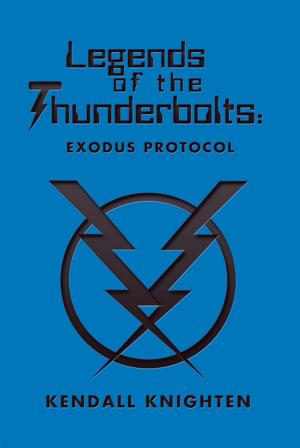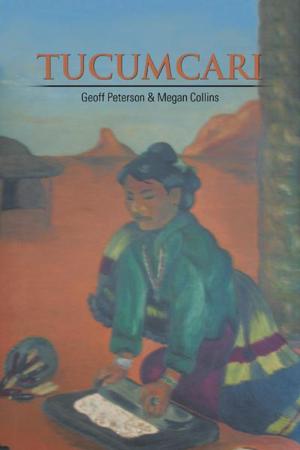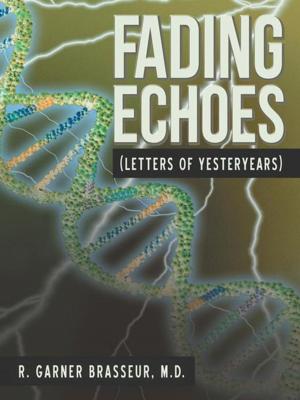| Author: | Mfon Edie | ISBN: | 9781468566031 |
| Publisher: | AuthorHouse | Publication: | September 26, 2011 |
| Imprint: | AuthorHouse | Language: | English |
| Author: | Mfon Edie |
| ISBN: | 9781468566031 |
| Publisher: | AuthorHouse |
| Publication: | September 26, 2011 |
| Imprint: | AuthorHouse |
| Language: | English |
By offering some insights into a key area of West Africa, this book attempts to take the wonders of Ancient Egypt out of the realm of myths and folklore. The credit for the longevity of Ancient Egyptian traditions belongs to their erstwhile scribes,who managed to keep extensive records of Egypts history and achievements over an exceptionally long period. The Anang, Efik, and Ibibio people also deserve recognition for maintaining a spoken language that has notchanged very much from that spoken by the Ancient Egyptians at the various stages of their development, and for perpetuating a very unique culture that allows for the uncomplicated linkage of these two worlds. Bystudying this ancient language and culture, we can pose some formidable questions about our presentquestions that shape our understanding ofthe genesis of the three main Middle Eastern religious movements, and that help explain the evolution of modern science.The fact that other venerated civilizations, including the Semites, Persians, and Greeks, represented Egyptian words inaccurately does not warrant perpetuating such corruption, as this would rob those words of their true essence. Much as the corrupted English words Ikobi, inokobi would not sound familiar to an English-speaker as the words To be, or not to be, neither do words like miri, kem, or osiris represent the Ancient Egyptian muara, ekim, and ase, respectively.......
Page 56, re men kimi - In Efik, these corrupted words should read as uyo mn ekim, meaning black voices (voices of those who are black). Up until the earlier period of the present-day Copts, Egyptians referred to themselves as such: mn ekim. In a similar vein, the present-day speakers of this languageincluding the Efik, Ibibio, Anang, rn, Etinan, Uyo, Nsit, Ibun, Itu, Ikt Abasi, ft, Ediene, Eket, Abak, Ikt Aran, Ikt Ub, Oku, Itam, Muaa (iba)are described in similar fashion, i.e., mn so-and-so. In this case, mn is used in a generic manner as opposed to nu, which has particular relevance to family or ancestors.
By offering some insights into a key area of West Africa, this book attempts to take the wonders of Ancient Egypt out of the realm of myths and folklore. The credit for the longevity of Ancient Egyptian traditions belongs to their erstwhile scribes,who managed to keep extensive records of Egypts history and achievements over an exceptionally long period. The Anang, Efik, and Ibibio people also deserve recognition for maintaining a spoken language that has notchanged very much from that spoken by the Ancient Egyptians at the various stages of their development, and for perpetuating a very unique culture that allows for the uncomplicated linkage of these two worlds. Bystudying this ancient language and culture, we can pose some formidable questions about our presentquestions that shape our understanding ofthe genesis of the three main Middle Eastern religious movements, and that help explain the evolution of modern science.The fact that other venerated civilizations, including the Semites, Persians, and Greeks, represented Egyptian words inaccurately does not warrant perpetuating such corruption, as this would rob those words of their true essence. Much as the corrupted English words Ikobi, inokobi would not sound familiar to an English-speaker as the words To be, or not to be, neither do words like miri, kem, or osiris represent the Ancient Egyptian muara, ekim, and ase, respectively.......
Page 56, re men kimi - In Efik, these corrupted words should read as uyo mn ekim, meaning black voices (voices of those who are black). Up until the earlier period of the present-day Copts, Egyptians referred to themselves as such: mn ekim. In a similar vein, the present-day speakers of this languageincluding the Efik, Ibibio, Anang, rn, Etinan, Uyo, Nsit, Ibun, Itu, Ikt Abasi, ft, Ediene, Eket, Abak, Ikt Aran, Ikt Ub, Oku, Itam, Muaa (iba)are described in similar fashion, i.e., mn so-and-so. In this case, mn is used in a generic manner as opposed to nu, which has particular relevance to family or ancestors.















